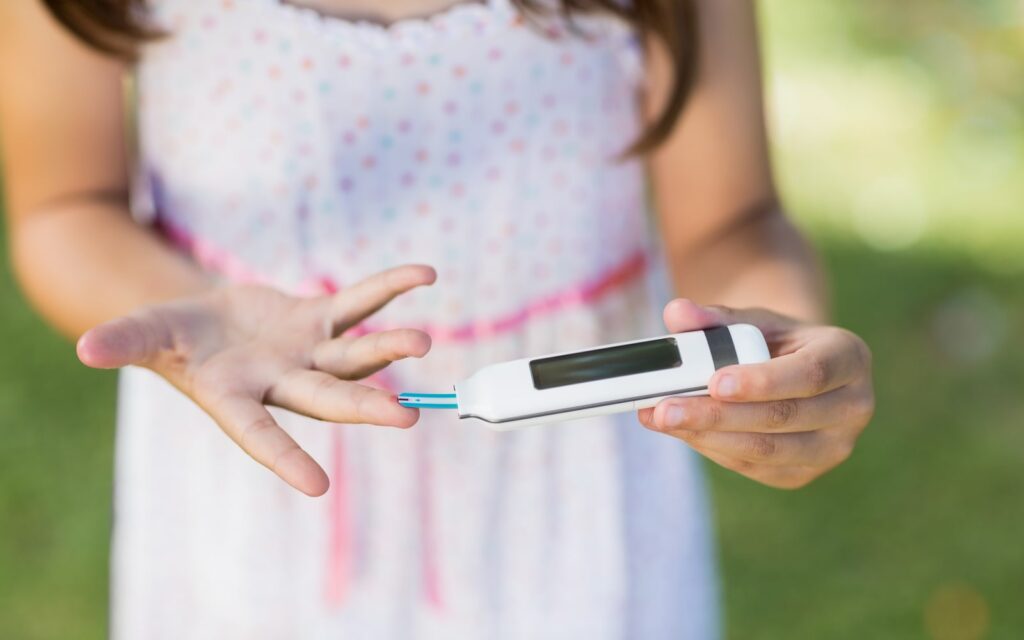Introduction
The growing understanding of dental health and diabetes has led to a clear conclusion. Those who have diabetes are more likely to have problems with their oral health. The millions of Americans with diabetes need to pay extra attention to their teeth. Doing so is the best way to prevent the complications that can come with their medical condition.
Understanding The Link Between Oral Health and Diabetes
Research into the link between diabetes and oral health has been ongoing. The data shows that high blood sugar is the link that causes dental problems. The heightened levels found in diabetes patients result in a weakening of the white blood cells. These important cells form the first line of defense against infection, including those that cause tooth decay.
Those dental patients who have diabetes are at an increased risk of:
- Dry Mouth – Diabetes that isn’t controlled can lead to less saliva being formed. This lack leads to dry mouth, which can cause ulcers, tooth decay, soreness, and infections.
- Gingivitis and Periodontitis – The weakened white cells make it easier for gum disease to take hold. It also thickens the blood, limiting the flow of wastes away from tissues. This issue also makes it harder to get nutrients to places that need them. All of this results in more difficulty fighting infections like gingivitis.
- Difficulty Healing – Those with diabetes don’t heal as efficiently. This problem means that oral surgeries are more difficult for them. Healing times can be extended and more painful.
- Thrush – An impaired immune system also makes the development of an oral yeast infection possible. This condition is known as thrush.
- Burning Mouth/Tongue – This is a primary indicator of the presence of the yeast infection known as thrush.
An important point to consider is that those who use tobacco products are at an elevated risk of these conditions. When combined with diabetes, the risks are nearly 20 times higher. This risk is due, in part, to smoke’s ability to limit blood flow to the gums.
Risk of these conditions
An important point to consider is that those who use tobacco products are at an elevated risk of these conditions. When combined with diabetes, the risks are nearly 20 times higher. This risk is due, in part, to smoke’s ability to limit blood flow to the gums.
Precautions
Those with diabetes must take extra precautions to avoid oral health problems. These precautions start with a dedicated oral hygiene routine and monitoring their blood sugar. When you go to a dental appointment, be sure to inform your practitioner about the current state of your diabetes. If low blood sugar has been a problem, tell your dentist. They’ll need to know how often they happened when your last episode was and when your last insulin dose was.
Work With Your Dentist To Manage Diabetes and Oral Health
The situation for those with diabetes isn’t all bad news. Good oral hygiene is essential and can help prevent the majority of the complications that occur. Fluoride, flossing, mouthwash, and brushing twice a day are essential. Keeping your blood sugar under control will also help protect your teeth and gums by reducing infection rates. If you discover that oral surgery will be necessary, be sure to speak to your physician. Working with your dentist and PCP together is the best way to prepare for the long road of healing ahead. With their help, you can reduce the risk significantly.
The growing understanding of dental health and diabetes has led to a clear conclusion. Those who have diabetes are more likely to have problems with their oral health. The millions of Americans with diabetes need to pay extra attention to their teeth. Doing so is the best way to prevent the complications that can come with their medical condition.
Understanding The Link Between Oral Health and Diabetes
Research into the link between diabetes and oral health has been ongoing. The data shows that high blood sugar is the link that causes dental problems. The heightened levels found in diabetes patients result in a weakening of the white blood cells. These important cells form the first line of defense against infection, including those that cause tooth decay.
Those dental patients who have diabetes are at an increased risk of:
- Dry Mouth – Diabetes that isn’t controlled can lead to less saliva being formed. This lack leads to dry mouth, which can cause ulcers, tooth decay, soreness, and infections.
- Gingivitis and Periodontitis – The weakened white cells make it easier for gum disease to take hold. It also thickens the blood, limiting the flow of wastes away from tissues. This issue also makes it harder to get nutrients to places that need them. All of this results in more difficulty fighting infections like gingivitis.
- Difficulty Healing – Those with diabetes don’t heal as efficiently. This problem means that oral surgeries are more difficult for them. Healing times can be extended and more painful.
- Thrush – An impaired immune system also makes the development of an oral yeast infection possible. This condition is known as thrush.
- Burning Mouth/Tongue – This is a primary indicator of the presence of the yeast infection known as thrush.
An important point to consider is that those who use tobacco products are at an elevated risk of these conditions. When combined with diabetes, the risks are nearly 20 times higher. This risk is due, in part, to smoke’s ability to limit blood flow to the gums.
Those with diabetes must take extra precautions to avoid oral health problems. These precautions start with a dedicated oral hygiene routine and monitoring their blood sugar. When you go to a dental appointment, be sure to inform your practitioner about the current state of your diabetes. If low blood sugar has been a problem, tell your dentist. They’ll need to know how often they happened when your last episode was and when your last insulin dose was.
Work With Your Dentist To Manage Diabetes and Oral Health
The situation for those with diabetes isn’t all bad news. Good oral hygiene is essential and can help prevent the majority of the complications that occur. Fluoride, flossing, mouthwash, and brushing twice a day are essential. Keeping your blood sugar under control will also help protect your teeth and gums by reducing infection rates. If you discover that oral surgery will be necessary, be sure to speak to your physician. Working with your dentist and PCP together is the best way to prepare for the long road of healing ahead. With their help, you can reduce the risk significantly.





















